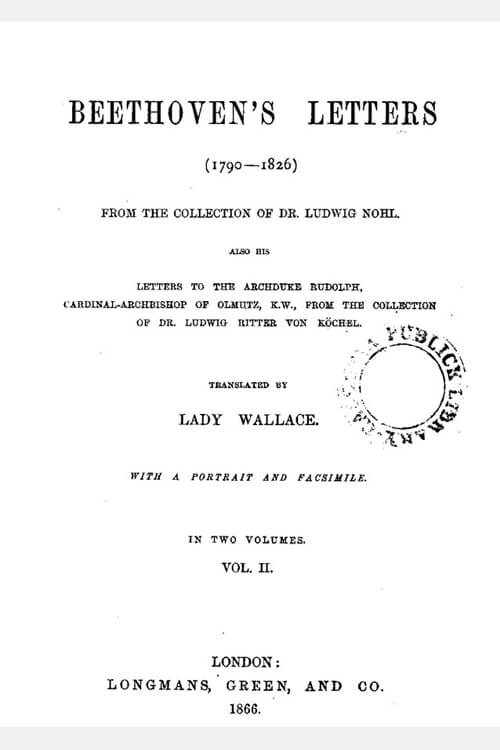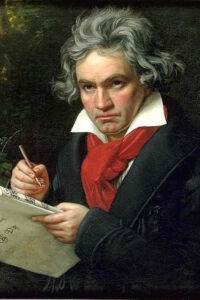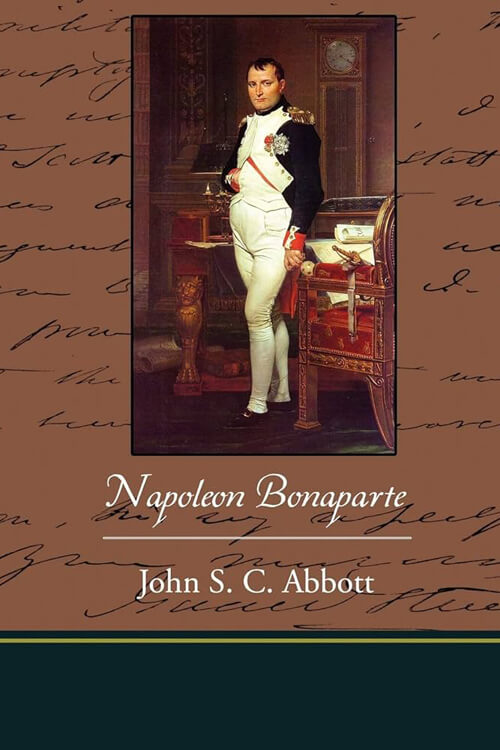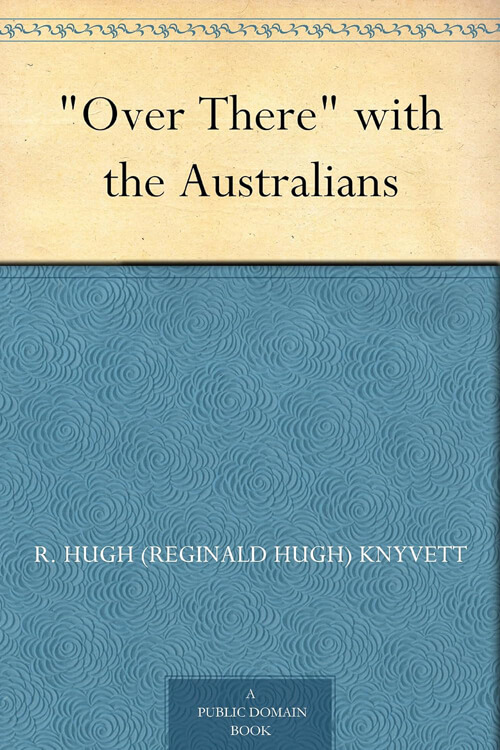
Beethoven’s Letters 1790-1826, Volume 2
At any rate, this is the first time that it has been necessary to remind me of an agreeable duty; a very pressing business connected with my art and other causes made me forget the account, but this shall not occur again. As for my servant bringing Carl home in the evening, the arrangement has already been made. In the meantime, I thank you for being so obliging as to send your servant for him yesterday, as I knew nothing about it so that Carl probably must otherwise have remained at Czerny’s. Carl’s boots are too small, and he has repeatedly complained of this; indeed, they are so bad that he can scarcely walk, and it will take some time before they can be altered to fit him. This kind of thing ruins the feet, so I beg you not to allow him to wear them again until they are more extensive.
About his pianoforte studies, I beg you to keep him strictly to them; otherwise, his music master would be of no use. Yesterday Carl could not play the whole day, I have repeatedly wished to hear him play over his lessons, but have been obliged to come away without doing so. “La musica merita d’esser studiata.” Besides, a couple of hours now appointed for his music lessons are quite insufficient. I must, therefore, more earnestly urge on you their being strictly adhered to. It is not unusual that this point should be attended to in an institute; an intimate friend of mine also has a boy at school who will become a music professor, where every facility is for study…
Read or download Book
Ludwig van Beethoven
Ludwig van Beethoven (baptized 17 December 1770 – 26 March 1827) was a German composer and pianist.
Biography
Beethoven remains one of the most admired composers in the history of Western music; his works rank among the most performed in the classical music repertoire and span the transition from the classical period to the Romantic era in classical music. His career has been divided into early, middle, and late periods. His early period, during which he forged his craft, is typically considered to have lasted until 1802. From 1802 to around 1812, his middle period showed individual development in the styles of Joseph Haydn and Wolfgang Amadeus Mozart, and it is sometimes characterized as heroic. During this time, he began to grow increasingly deaf. In his late period, from 1812 to 1827, he extended his innovations in musical form and expression.
Beethoven was born in Bonn. His musical talent was evident at an early age. His father, Johann van Beethoven, was initially harshly and intensively taught him. Beethoven was later taught by the composer and conductor Christian Gottlob Neefe, under whom he published his first work, a set of keyboard variations, in 1783. He found relief from a dysfunctional home life with the family of Helene von Breuning, whose children he loved, befriended, and taught piano. At age 21, he moved to Vienna, his base, and studied composition with Haydn. Beethoven then gained a reputation as a virtuoso pianist and was soon patronized by Karl Alois and Prince Lichnowsky for compositions, which resulted in his three Opus 1 piano trios (the earliest works to which he accorded an opus number) in 1795. His first major orchestral work, the First Symphony, premiered in 1800, and his first set of string quartets was published in 1801. Despite his hearing deteriorating during this period, he continued to conduct, premiering his Third and Fifth Symphonies in 1804 and 1808, respectively. His Violin Concerto appeared in 1806. His last piano concerto (No. 5, Op. 73, known as the Emperor), dedicated to his frequent patron Archduke Rudolf of Austria, premiered in 1811, without Beethoven as soloist. He was almost completely deaf by 1814, and he then gave up performing and appearing in public.
He described his problems with health and his unfulfilled personal life in two letters: his Heiligenstadt Testament (1802) to his brothers and his unsent love letter to an unknown “Immortal Beloved” (1812). After 1810, increasingly less socially involved, Beethoven composed many of his most admired works, including later symphonies, mature chamber music, and the late piano sonatas. His only opera, Fidelio, first performed in 1805, was revised to its final version in 1814. He composed Missa solemnis between 1819 and 1823 and his final Symphony, No. 9, one of the first examples of a choral symphony, between 1822 and 1824. Written in his last years, his late string quartets, including the Grosse Fuge, of 1825–1826 are among his final achievements. After several months of illness, which left him bedridden, he died in 1827.





